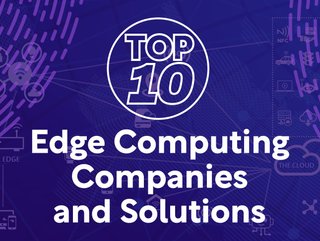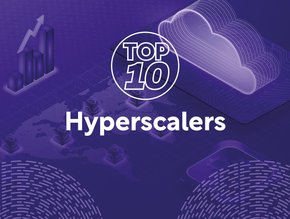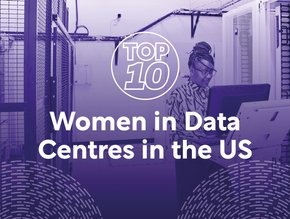
The explosion of big data has transformed how we collect, store, and analyse information. As the volume of data continues to grow, traditional data centre-based approaches are facing increasing limitations in handling this increase in data effectively. This is where edge computing emerges as a promising solution for big data management and analysis.
In contrast to traditional cloud computing, which centralises data processing in remote data centres, edge computing distributes computing resources closer to the data sources, or "edges" of the network which then offers several advantages, including reduced latency, improved bandwidth utilisation, and enhanced privacy and security.
With that in mind, Data Centre Magazine explores some of the biggest names in edge computing.
10. Akamai Technologies
Founded in 1998, Akamai Technologies is a pioneer in edge computing, with a revolutionary approach to data processing that brings computing power closer to data sources, rather than relying entirely on centralised data centres.
Akamai's extensive edge computing network, spanning over 135 countries and connecting to over 1,400 networks, enables businesses to deliver seamless, secure, and optimised digital experiences to users worldwide.
9. Hewlett Packard Enterprise Company
Hewlett Packard Enterprise Company is a global technology leader with a rich heritage of innovation, dating back to 1939. The company's Intelligent Edge platform plays a pivotal role in enabling organisations to harness the power of edge computing and transform their operations across various industries.
The platform allows organisations to manage, analyse, and secure edge computing deployments, providing a unified software stack and hardware infrastructure that can be deployed across multiple edge locations.
8. Dell Technologies Inc
American multinational technology company, Dell Technologies Inc., is a leading provider of infrastructure solutions, offering a portfolio of hardware, software, and services for various industries. Understanding the transformative potential of edge computing, Dell has developed its NativeEdge edge software platform, which is designed to simplify, secure, and optimise edge deployments across multiple industries.
It provides a unified management interface for Dell's edge computing hardware, enabling centralised control and configuration of distributed edge infrastructure.
7. Cloudflare
Cloudflare is a prominent cloud services provider that has gained significant traction among Fortune 1000 companies for its robust edge computing capabilities. The company's edge computing solutions are designed to deliver a seamless and secure digital experience for businesses and their customers, regardless of their location or device.
Cloudflare's edge computing platform encompasses both edge and core infrastructure, enabling businesses to optimise performance, enhance security, and gain real-time insights across their entire IT ecosystem.
6. Oracle
Oracle Corporation has established a strong presence in the cloud computing landscape, offering solutions for enterprises across various industries. Founded in 1977, the company recognises the growing importance of edge computing.
Oracle has developed its Roving Edge Infrastructure platform, which is a versatile platform designed to bring computing power and storage closer to data sources, enabling real-time processing and analysis even in remote locations with limited or intermittent internet connectivity.
5. NVIDIA Corporation
As a leading semiconductor innovator that has established a prominent position in the edge computing landscape, NVIDIA Corporation’s edge computing solutions leverage its powerful GPUs and AI capabilities to address the unique challenges and opportunities of processing data at the network's edge.
The company’s EGX Edge Computing Platform enables organisations to deploy, manage, and scale edge computing solutions across their distributed infrastructure. The platform provides a unified software stack and hardware infrastructure that can be deployed on a variety of edge devices, from rugged industrial computers to cloud-native virtual machines.
4. Netflix
Netflix is a renowned streaming entertainment company that has revolutionised the way people consume video content. While not traditionally considered an edge computing pioneer, Netflix has embraced edge computing technology to enhance the user experience and deliver a seamless streaming experience to its vast global audience.
Netflix's edge computing strategy involves deploying micro data centres strategically located close to its user clusters. These micro data centres act as intermediaries, caching and processing content closer to the users. This approach significantly reduces the distance that data has to travel to reach users, minimising latency and ensuring a responsive streaming experience.
3. Google Cloud
Google Distributed Cloud is a groundbreaking solution that extends the reach of Google Cloud into localised data processing centres, enabling organisations to harness the power of Google's advanced cloud services without relying on centralised data centres.
This innovative approach redefines the boundaries of edge computing, allowing businesses to reap the benefits of cloud-based capabilities while maintaining data sovereignty and ensuring compliance with local regulations. Google Distributed Cloud represents a transformative advancement in edge computing, providing organisations with a secure, scalable, and cost-effective solution to process data locally and harness the power of Google Cloud's advanced capabilities.
2. Microsoft Azure
The Microsoft Azure platform is a prominent player in the cloud computing landscape, offering a suite of services for building, deploying, and managing cloud-based applications and services. Azure's edge division, Azure Private Multi-Access Edge Compute (MEC), plays a crucial role in extending the reach of Azure's capabilities to the network's edge.
Azure Private MEC is a flexible and scalable solution that enables organisations to deploy and manage edge computing infrastructure within their own private network, offering several advantages over public cloud-based edge solutions including enhanced Security and compliance, reduced reliance on public networks, and greater flexibility and control surrounding the hardware, software, and configurations of their edge infrastructure.
1. AWS
Amazon Web Services (AWS), a leading cloud computing platform, provides a comprehensive, secure, and scalable suite of cloud services, encompassing compute, storage, networking, database, analytics, machine learning (ML), artificial intelligence (AI), Internet of Things (IoT), and mobile services.
AWS edge services extend the reach of the AWS cloud to edge locations, enabling organisations to deploy APIs and tools closer to their endpoints. This approach offers several benefits for applications that demand low latency, real-time responsiveness, and heightened security.
The company's edge services are a powerful tool for organisations that require real-time data processing and analysis. By bringing data processing closer to the source, AWS edge services can enable ultra-low latency, intelligent decision-making, and enhanced security.
******
For more insights into the world of Data Centre - check out the latest edition of Data Centre Magazine and be sure to follow us on LinkedIn & Twitter.
Other magazines that may be of interest - Mobile Magazine.
Please also check out our upcoming event - Sustainability LIVE Net Zero on 6 and 7 March 2024.
******
BizClik is a global provider of B2B digital media platforms that cover Executive Communities for CEOs, CFOs, CMOs, Sustainability leaders, Procurement & Supply Chain leaders, Technology & AI leaders, Cyber leaders, FinTech & InsurTech leaders as well as covering industries such as Manufacturing, Mining, Energy, EV, Construction, Healthcare and Food.
BizClik – based in London, Dubai, and New York – offers services such as content creation, advertising & sponsorship solutions, webinars & events.






